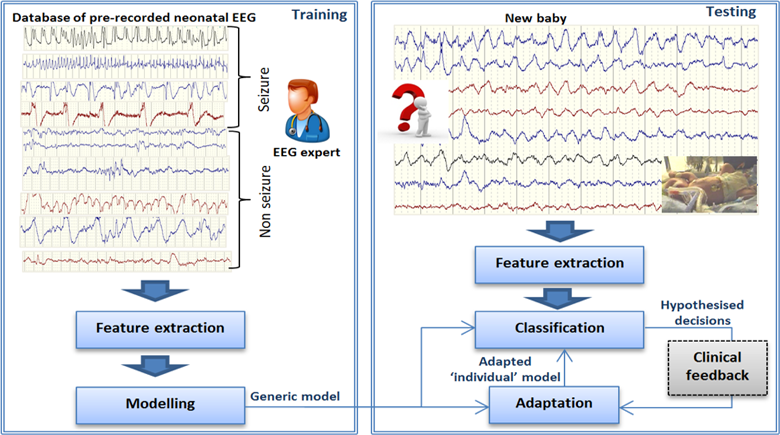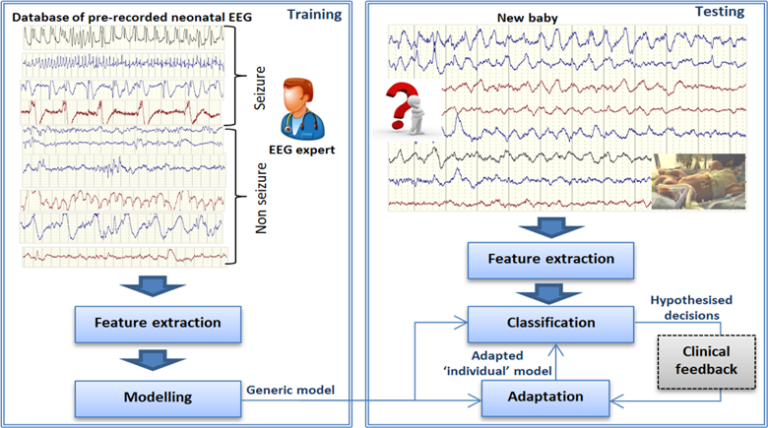
The problem of creating a personalized seizure detection algorithm for newborns is tackled in this paper. A probabilistic framework for semi-supervised adaptation of a generic patient-independent neonatal seizure detector is proposed. A system that is based on a combination of patient-adaptive (generative) and patient-independent (discriminative) classifiers is designed and evaluated on a large database of unedited continuous multichannel neonatal EEG recordings of over 800 h in duration. It is shown that an improvement in the detection of neonatal seizures over the course of long EEG recordings is achievable with on-the-fly incorporation of patient-specific EEG characteristics. In the clinical setting, the employment of the developed system will maintain a seizure detection rate at 70% while halving the number of false detections per hour, from 0.4 to 0.2 FD/h. This is the first study to propose the use of online adaptation without clinical labels, to build a personalized diagnostic system for the detection of neonatal seizures.

